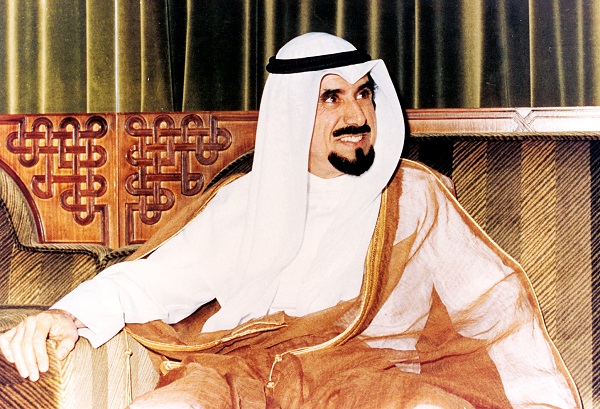Kuwait will mark the 13th anniversary of the passing of Sheikh Jaber Al-Ahmad tomorrow. Many Kuwaitis recall fondly the deeds and achievements of the ‘Amir of Hearts’, who spent his life serving his country and people.
Sheikh Jaber Al-Ahmad Al-Sabah, was born in 1926 in Kuwait and was in power for 29 years as the country’s 13th ruler, and the third Amir in the state’s constitutional era, which began with signing the Constitution on 11 November, 1962, by the late Amir Sheikh Abdullah Al-Salem Al-Sabah. He died on 15 January, 2006.
Since he came to power in 1977, the late Amir Sheikh Jaber, led the country to development and progress in all domains and on all levels, and enhanced its status on political, economic and charitable arenas across the globe. The late Amir was very keen to establish balanced bilateral relations with the world, and his wise leadership helped Kuwait overcome challenges and address crises it has faced, mainly in the 1980s and 1990s of the last century.
During his tenure, Kuwait has witnessed a remarkable urban renaissance and development in all sectors and general utilities, with a successive pace. He paid attention to the Kuwaiti youth, and this was evident in 1992 with the founding of the Public Authority for Youth and Sports. The organization was entrusted with caring for the affairs of Kuwaiti young people and promoting their physical and mental capabilities.
On the plight of the Iraqi invasion 1990, Sheikh Jaber’s wisdom and experience had managed to mobilize support from sisterly and friendly countries to drive the Iraqi troops out of the country and liberate the entire homeland.
Due to his wisdom and the support of Kuwaitis, the State of Kuwait resumed the renaissance march, achievements and reconstruction, and removed all traces of the Iraqi invasion.
In his benevolence, he decided to take care of the martyrs’
children through establishing the Martyrs Bureau on June 19, 1991. He also spared no efforts on the release of Kuwaitis held by the Iraqi regime. He cared about Kuwaiti women, and issued in 1999 a decree giving women citizens’ full political rights. Among the prominent institutions established during Sheikh Jaber’s reign were the Public Authority for Social Insurance to secure dignified living conditions for the elderly, and the Reserve Fund for Future Generations, which benefited the Kuwaiti people during the Iraqi invasion.
On the political level, the late Amir launched several initiatives on Gulf, Arab and international levels, and suggested the idea of establishing the Gulf Cooperation Council (GCC), which mirrored his keenness on the joint cohesion and common destiny to face foreign challenges and political blocs.
In 1996, GCC Doha Summit, Sheikh Jaber suggested the formation of a 30-member consultative council in order to provide proposals to the GCC leaders to promote the process of decision-making. The late Amir also prioritized Muslim and Arab issues as he proposed the establishment of the Kuwait Fund for Arab Economic Development in 1961. He chaired the board of directors of this institution, which offered financial support to development efforts not only in the Arab world but in many others. He also dropped interest of debts due on poor countries.
The late Amir was keen on taking part in several conferences and meetings across the globe, and paid many official visits to enhance Kuwait’s status globally. In a poll conducted by a London-based media institution in 1995, Sheikh Jaber was chosen as the humanitarian personality of the year among five million Arabs, in recognition of his charitable actions and financial support for many global institutions.
‘The Amir of Hearts’ was engraved in all people’s minds and hearts as several places were named after him like Jaber Al-Ahmad Hospital, Jaber Al-Ahmad Armed Forces Hospital, Jaber Al-Ahmad International Stadium, Jaber Al-Ahmad City, Jaber Al-Ahmad Cultural Center, Jaber AlAhmad Causeway and others. Furthermore, many places in several countries were named after him, in recognition of his status as present in the hearts of many people not only in Kuwait, but also in many Arab and Muslim states.

